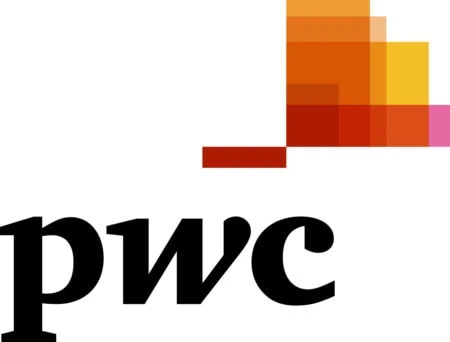The green transition is now a major driver of economic growth and job creation, and we need to be ready to capture this opportunity in the Channel Islands. In this blog, we share our latest analysis of growth of green jobs in Jersey and Guernsey and the implications going forward.
The International Labour Organization (ILO) estimates that the transition to a low-carbon economy could create an additional 24 million new jobs globally by 2030, whilst the International Renewable Energy Agency (IRENA) finds that the renewable energy sector alone employed around 11.5 million people globally in 2019, predicted to rise to 42 million by 2050. Other sectors, such as sustainable agriculture, green construction, and clean transportation, are also experiencing growth. The World Green Building Council estimates that the green construction sector alone will account for more than 6.5 million jobs by 2030.
Tracking the Channel Islands’ transition to a green economy
PwC Channel Islands’ inaugural Green Jobs Barometer for the Channel Islands, first published in 2022, sought to measure how well our islands compare with regions in the UK in the transition to a green economy. The Green Jobs Barometer does this by measuring progress against five green indicators:
- Green jobs created
- Wider benefits from green jobs
- Sunset jobs to disappear
- Carbon intensity of employment
- Green workplace
An overall score was given out of 100; Jersey (45) and Guernsey (39) which both ranked similarly to the UK average (43). Whilst this is a great start, there are clear opportunities for further progress with Scotland (74) and London (62) being the leading regions in the latest UK index. If Jersey and Guernsey are to capture the full benefits of the green transition, we will need to harness green economy opportunities and the adoption of best practices across all sectors, from sustainable farming to renewable energy and sustainable finance professional services.
Growth in green jobs in the Channel Islands
What is a green job in the Channel Islands context? We define green jobs as those that fall into one of three categories:
- Producing and providing: Producing and providing environmentally friendly products or services that directly have a positive impact on the environment. “Green jobs in green businesses” (e.g. waste managers, solar energy installers)
- Adapting: Adapting work processes to become more environmentally friendly to lessen their environmental impact. “Green jobs in regular businesses” (e.g. corporate sustainability officers, sustainable investment managers)
- Supporting: Supporting the green economy indirectly by providing goods or services that enable the green transition. “Jobs that support green businesses” (e.g. consultancy services, administrative and training roles)
We recently revisited Pillar 1 of the Green Jobs Barometer, which tracks how many green jobs are being created in the Channel Islands. In line with global trends, our latest labour market insights suggest the pace at which green jobs are being created is indeed rising locally. Over the two year period from January 2021 to December 2022, we saw 507 green jobs¹ advertised across the Channel Islands. This is 180 more green roles than in the period from July 2019 to June 2021, and now represents 1.7% of all job vacancies in Jersey and 0.5% of job vacancies in Guernsey.
This may still sound small, but is in line with growth in many parts of the UK, and is expected to increase more rapidly in the next few years, following a similar path to growth of digital jobs on the islands. Our analysis also shows growth across all three categories across the private, public, and third sectors on the islands, with the greatest growth in “supporting” roles. If we include the wider benefits of these jobs, this increases from 507 local jobs to almost 940 jobs, with 430 jobs supported from the multiplier effect of these green jobs created² . These 430 roles span all sectors of the economy from retailers and restaurants to professional service firms and farmers.
This is an exciting time to be working in the green economy in the Channel Islands. We continue to see growth of green economy sectors and business clusters ranging from renewable energy installation, regenerative agriculture, and the circular economy, retail and hospitality businesses, through to sustainable finance, supporting professional services, and government policy roles.
These jobs and sectors have multiple co-benefits for the islands. They help to increase productivity and efficiency, support island resilience, and help to secure the longer-term good growth and international reputation of the islands.
The rise of green skills
Green skills comprise the knowledge, abilities, and attitudes needed to contribute to the green economy. They include technical domain skills as well as wider transferable skills and soft skills. Over time we expect “green skills density” to strengthen in all jobs and roles across the economy, in a similar way to the expansion of digital skills over the last decade. Almost all jobs now have some degree of technology application, and we expect the same for green skills over the coming years.
For example, here at PwC Channel Islands, we believe it is essential that all our staff have a general understanding of sustainability, climate change, the implications for our clients, and how we do business. All staff in our business locally, regardless of their role, have now completed a series of mandatory ESG and Climate Risk training over the last two years and have mandatory annual performance objectives on their contribution to the firm’s wider sustainability agenda and Net Zero by 2030 commitment. They also have the opportunity to complete more detailed training in order to be amongst the first across the PwC network globally to earn a PwC Sustainability: Climate Action knowledge badge.
We know that depth and breadth of sustainability skills and qualified and experienced personnel on the islands could be a significant constraint on both our ability to meet our own domestic net zero targets, and our ability to harness addressable markets in competitive industries such as sustainable finance. If the Channel Islands are to fully realise the opportunities of the green transition, we need to raise awareness and understanding of green jobs and skills, and provide more access to training and education. In Jersey, we are proud to have co-founded the new Jersey Association for Sustainability Practitioners, and to provide regular industry briefing sessions on the sustainability agenda.
But as islands, we all need to do more. We will need the public, private, and education sectors to work together to address these skills gaps and to create the right conditions for green businesses to thrive.
Every industry sector needs to better understand what skills they need to transform, how they incentivise sustainable behaviours and decision-making, and encourage membership and training through appropriate channels and bodies.
If you would like to discuss how to rethink your workforce, skills, and employee value proposition for the green economy, please do get in touch.

Sarah Hollingsworth People & Organisation Lead, PwC Channel Islands
sarah.hollingsworth@pwc.com
+44 7911 720707

James Linder Senior Manager, PwC Channel Islands
james.linder@pwc.com
+44 7797 735561

